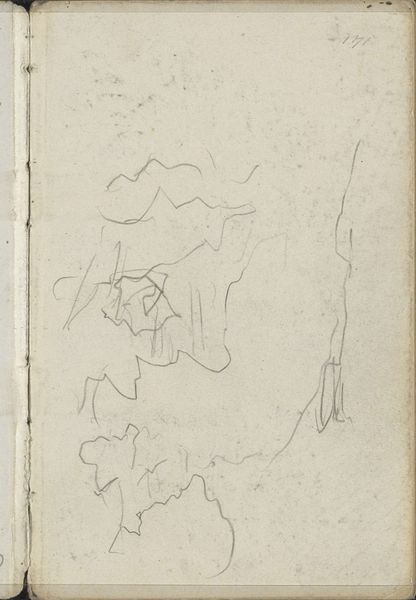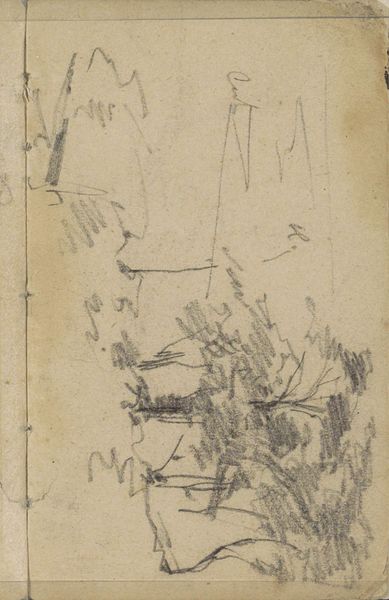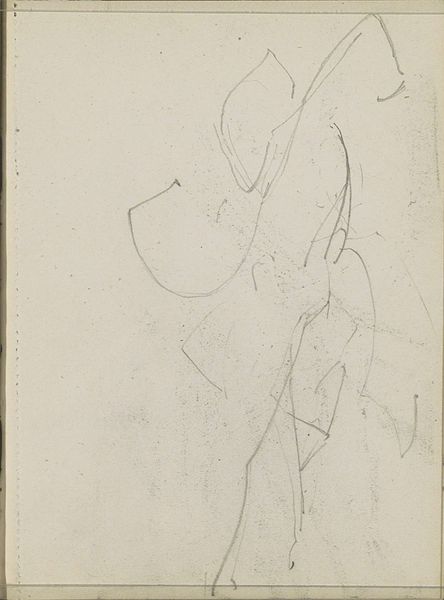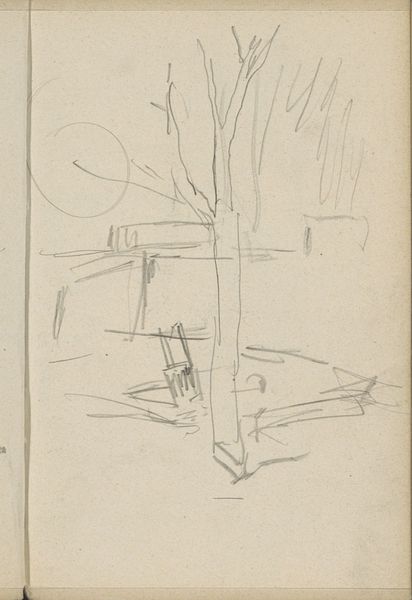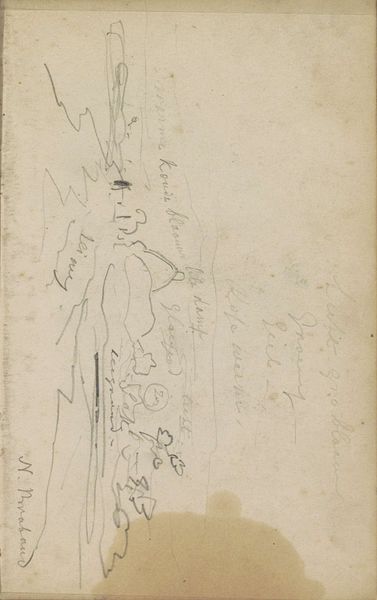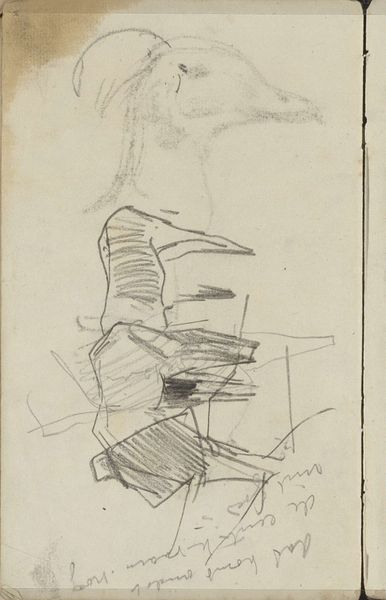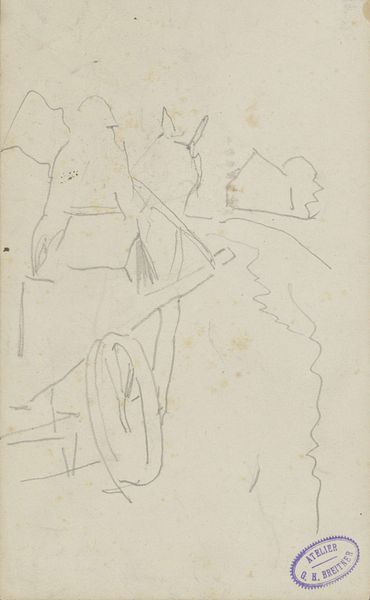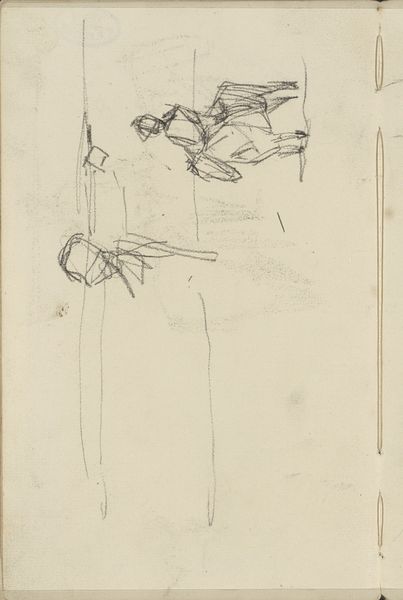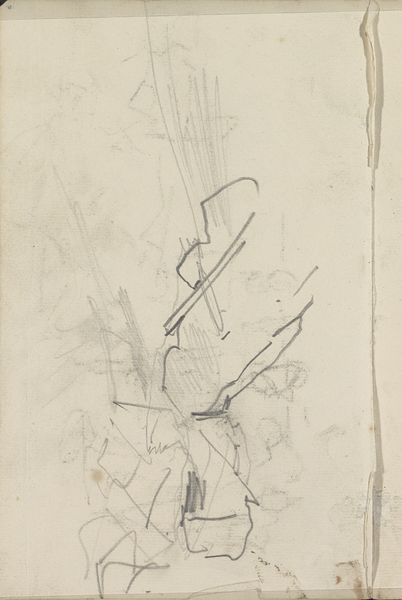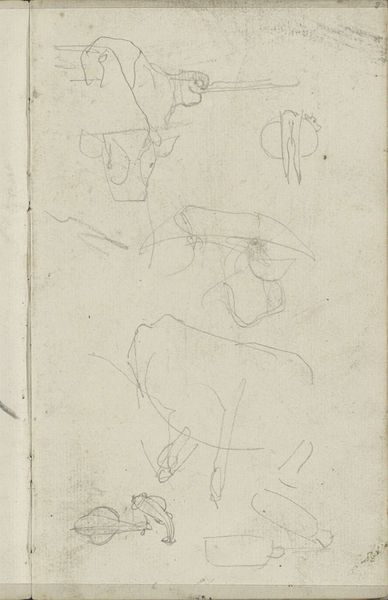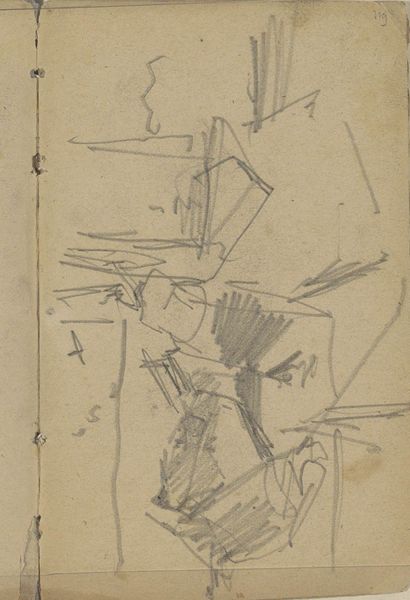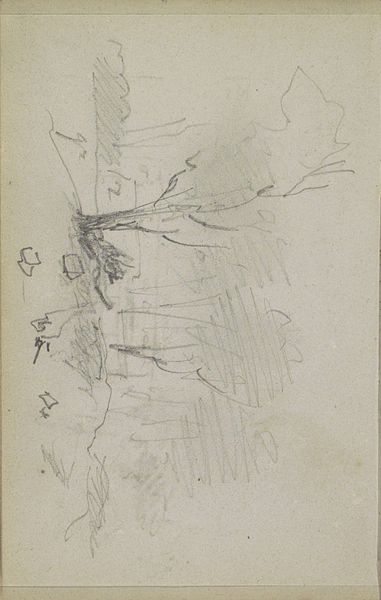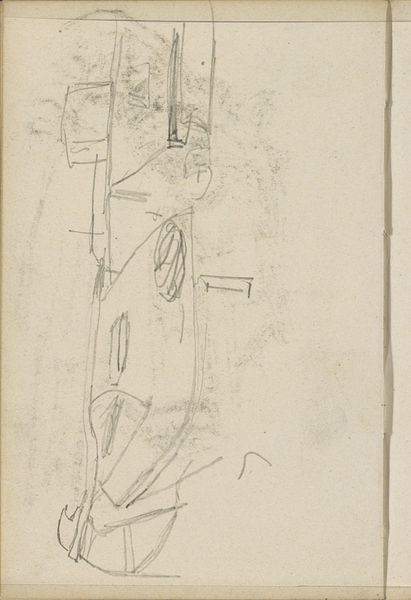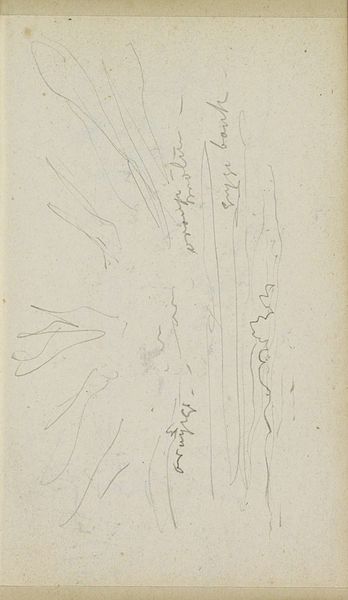
drawing, paper, pencil, pastel
#
drawing
#
paper
#
pencil
#
line
#
pastel
#
naturalism
Dimensions: height 384 mm, width 252 mm
Copyright: Rijks Museum: Open Domain
Curator: This is a plant study by Carel Adolph Lion Cachet, created sometime between 1874 and 1945. The artist employed pencil and pastel on paper to achieve its delicate lines and subtle tones. Editor: It has a somewhat ghostly quality, doesn’t it? Like faded botanical memories sketched in the softest graphite. The lines are so faint they seem to almost dissolve into the paper. Curator: Indeed. Cachet was working within a naturalistic tradition. We should also be aware of the legacy of colonial botany during this period, where drawings were an invaluable resource for recording, and appropriating, plant life around the globe. Editor: It's interesting how that tension is captured formally—a scientific practice conveyed through delicate and highly individual draftsmanship. Looking closer, there is something vaguely haunting about that intersection. What relationship did Cachet have with his subject? Where did the flowers grow, who tended them? Curator: Such drawings provided essential visual information and power over global resources—yet art training in that moment focused intently on observational skills. Cachet would have trained himself to observe plants accurately, yet the lines on display are barely more than impressions, light sketches to guide memory. Editor: A contradiction: attempting both accuracy and capturing the essence of form rather than specific, immutable facts. Do you think it speaks to a larger tension within colonial efforts - claiming specific scientific control while, in fact, deeply impacting existing communities and habitats beyond recovery? Curator: Yes, absolutely. These sketches remind me that even what appears innocuous often rests on a framework of social, cultural, and ecological domination. By understanding those forces, we view not just lines on paper, but how the plant life becomes subject to those politics. Editor: I agree. It really forces us to question the apparent neutrality of botanical studies. We must actively decode the inherent biases in historical methods, remembering that seeing is never simple— it's always laden with implication and effect.
Comments
No comments
Be the first to comment and join the conversation on the ultimate creative platform.
